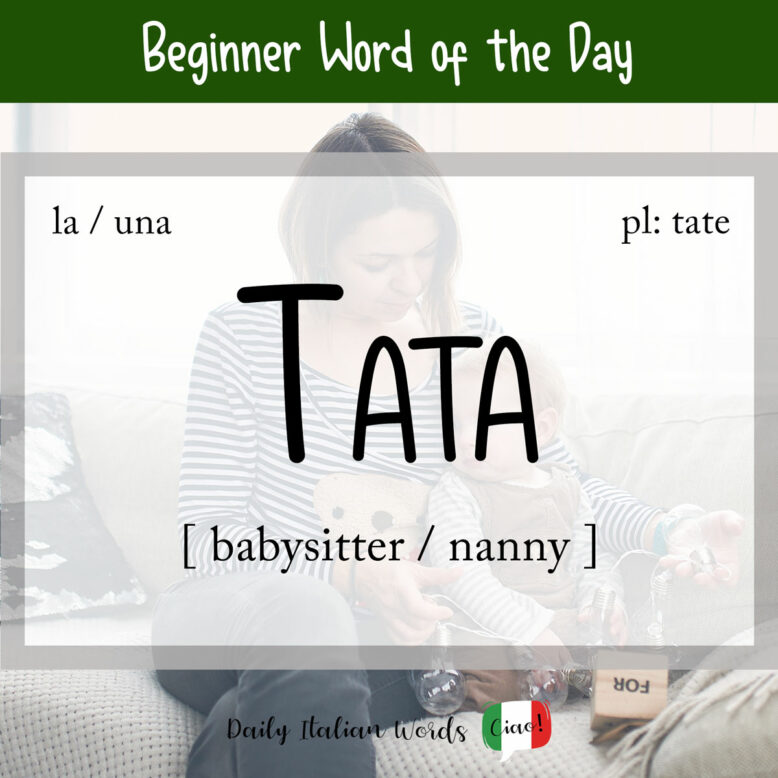The generic word used to indicate any woman, other than the mother, who takes care of a child is tata (feminine, plural: tate) in Italian. Some possible translations in English include babysitting, nanny and childminder.

Usually, tata denotes a woman whose full-time profession is childminding, rather than a teenager or young woman who occasionally babysits. (The latter is usually referred to with the English word babysitter pronounced with an Italian accent!)
Ho fatto la tata a tempo pieno presso una famiglia benestante di Torino.
I worked as a full-time nanny for a wealthy family from Turin.

Tata is onomatopoeic in that it mimics baby talk, much like the words nanna (nap / sleep) and pappa (baby food / mush).
Some possible synonyms for tata include:
- balia = a woman who a) sells her milk to another mother, or b) takes care of a baby in the place of the mother
- bambinaia = a salaried woman who is responsible for the care and custody of young children in a family
- governante = a salaried woman who takes care of the house and gives the children an education (governess)
Heather Broster is a graduate with honours in linguistics from the University of Western Ontario. She is an aspiring polyglot, proficient in English and Italian, as well as Japanese, Welsh, and French to varying degrees of fluency. Originally from Toronto, Heather has resided in various countries, notably Italy for a period of six years. Her primary focus lies in the fields of language acquisition, education, and bilingual instruction.


